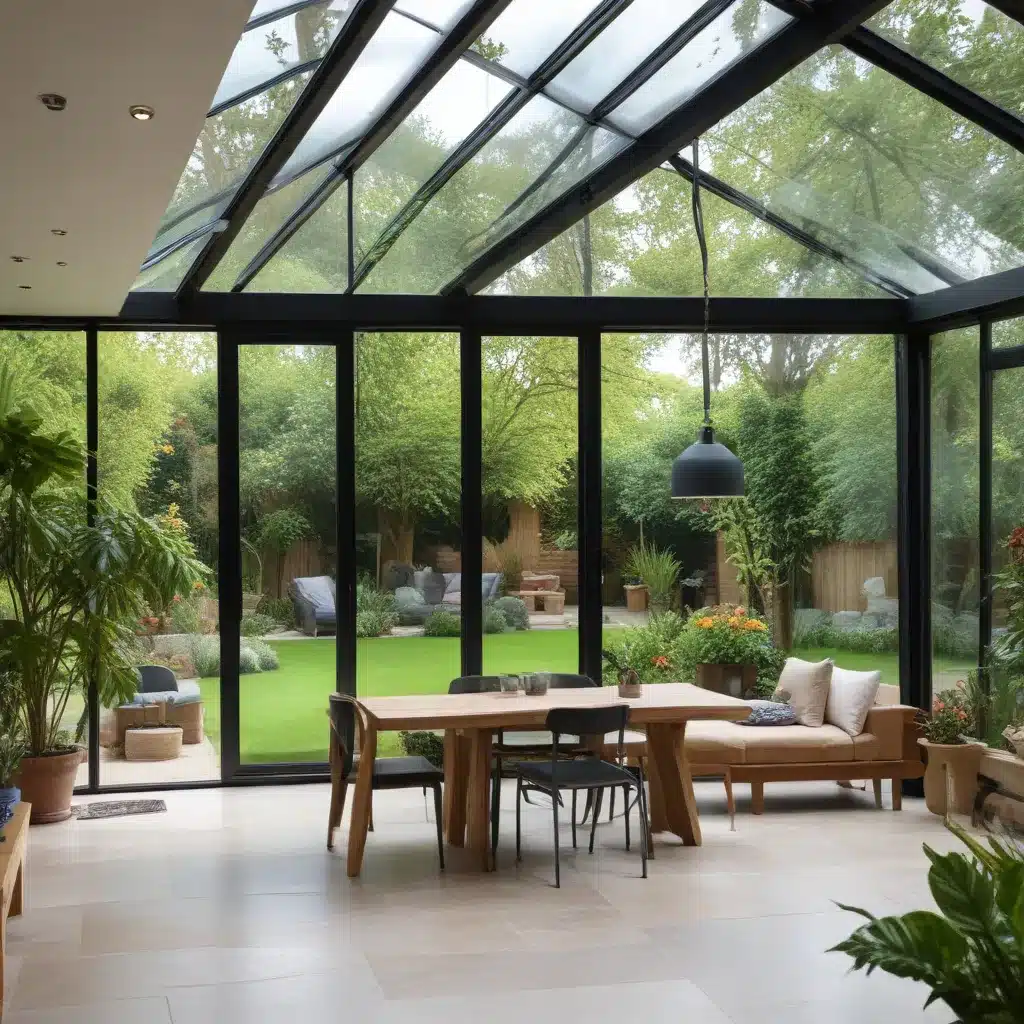
Unlocking the Benefits of Garden Room Extensions
In the UK, where the climate can be unpredictable and outdoor space is often limited, extending your home with a garden room can be a transformative solution. These light-filled, nature-inspired additions not only enhance the connection between your living spaces and the great outdoors but also offer a multitude of practical and lifestyle benefits.
As we delve into the world of garden room extensions, it’s essential to understand the regulatory landscape, cost considerations, and sustainable building practices that are crucial for success in the UK market. Whether you’re a homeowner seeking to expand your living area or a contractor looking to broaden your service offerings, this comprehensive guide will equip you with the necessary insights to navigate the process seamlessly.
Navigating UK Building Regulations for Garden Room Extensions
When it comes to constructing a garden room addition, adhering to the UK’s building regulations is paramount. These guidelines, enforced by local authorities, are designed to ensure the safety, accessibility, and energy efficiency of any new structure.
In England and Wales, the primary set of regulations homeowners and contractors must comply with are the Building Regulations 2010, which cover a wide range of technical requirements, from structural integrity to electrical installations. Scotland and Northern Ireland have their own respective building codes, but the overarching principles are largely similar.
One of the key considerations for garden room extensions is the Permitted Development Rights. These rights allow for certain types of home improvements without the need for full planning permission, provided they meet specific criteria. However, it’s crucial to check with your local council, as the specific regulations can vary between different regions.
For instance, in most cases, a single-story garden room extension of up to 4 meters in height and covering no more than 50% of the total land area surrounding the original house would fall under Permitted Development. Anything larger or more complex would likely require a formal planning application.
Additionally, homeowners must consider factors such as building materials, energy efficiency, and accessibility when designing their garden room. The regulations aim to ensure that these structures are safe, comfortable, and environmentally responsible, aligning with the UK’s broader sustainability goals.
Budgeting and Cost Considerations for Garden Room Extensions
Constructing a garden room extension is a significant investment, and understanding the associated costs is crucial for effective project planning and management. In the UK, the average cost for a basic single-story garden room can range from £15,000 to £30,000, depending on the size, complexity, and chosen materials.
However, it’s important to note that this is a broad estimate, and the actual costs can vary considerably based on several factors:
| Factor | Typical Cost Range |
|---|---|
| Size of the garden room | £1,500 – £3,000 per square meter |
| Building materials (e.g., timber, brick, glass) | £50 – £300 per square meter |
| Electrical and plumbing installations | £1,500 – £5,000 |
| Heating and cooling systems | £2,000 – £8,000 |
| Landscaping and exterior finishes | £1,000 – £5,000 |
| Planning and building permit fees | £200 – £1,000 |
It’s essential to work closely with a reputable contractor and obtain detailed quotes to ensure you have a clear understanding of the project’s financial requirements. Additionally, exploring options for energy-efficient technologies and sustainable building materials can help offset the initial investment through long-term cost savings and environmental benefits.
Embracing Sustainable Building Practices for Garden Room Extensions
As the UK continues to prioritize environmental responsibility, incorporating sustainable building practices into garden room extensions has become increasingly important. By adopting eco-friendly approaches, homeowners and contractors can not only reduce the project’s carbon footprint but also create a healthier, more energy-efficient living space.
One of the key sustainable strategies is the use of renewable and recycled materials. For example, timber sourced from sustainable forestry, cork flooring, and recycled glass can all contribute to a more environmentally conscious design. Additionally, investing in high-performance insulation and energy-efficient glazing can significantly improve the garden room’s thermal efficiency, reducing energy consumption and utility bills.
Integrating renewable energy sources, such as solar panels or ground-source heat pumps, can further enhance the sustainability of the project, enabling the garden room to generate its own clean power and minimize reliance on fossil fuels.
Beyond the physical structure, incorporating biophilic design principles can also play a crucial role in creating a harmonious, nature-inspired space. This approach focuses on strengthening the connection between the built environment and the natural world, often through the use of natural materials, ample natural lighting, and the integration of plants and greenery.
By embracing these sustainable building practices, homeowners and contractors can not only reduce the environmental impact of the garden room extension but also create a healthier, more enjoyable living space that aligns with the UK’s commitment to a greener future.
Conclusion: Unlocking the Potential of Garden Room Extensions
As the UK continues to grapple with the challenges of limited outdoor space and unpredictable weather, the garden room extension has emerged as a transformative solution. By navigating the regulatory landscape, carefully managing budgets, and embracing sustainable building practices, homeowners and contractors can unlock the full potential of these nature-inspired additions.
Whether you’re seeking to expand your living area, create a dedicated workspace, or simply enjoy a stronger connection with the outdoors, a well-designed and compliant garden room can be a game-changer. By adhering to UK building regulations, optimizing costs, and prioritizing eco-friendly solutions, you can create a space that not only enhances your quality of life but also contributes to a more sustainable future.
For more information on garden room extensions and other home improvement solutions, be sure to visit https://abc-home.co.uk/, where you can find a wealth of resources and expert guidance to guide you through the process. Together, we can unlock the true potential of our living spaces and foster a harmonious relationship between our homes and the natural world.
















